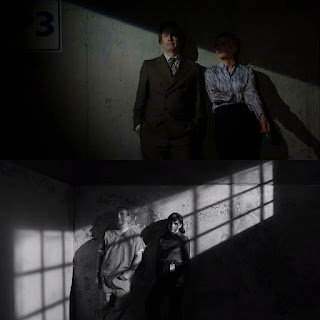Friday, June 27, 2025
The Work Image II: Three Scenes on their way to a Concept
Thursday, August 18, 2022
Unbecoming Saul: Reflections on the Last Season of Better Call Saul (Part Two)
Sunday, July 10, 2022
Becoming Saul: Reflections on the Last Season of Better Call Saul (Part One)
The prequel is defined by a particular kind of paradox. As much as it aspires to reach the point from which original story began, connecting with the present that it is the past of, the more that the point recedes, and become unreachable. Its very existence means that it can never reach what it aims for, its ending will always be different from the beginning of that which it is a prequel of. Or, more to the point it, overreaches its mark. This is especially true of the some of the worst versions of this, the movie Solo forgets that the name Han Solo is cooler if we never hear its hackneyed origin, that having a wookie as friend and sidekick is more interesting if we never see the first time they meet, and that the Kessel Run sounds cool but that does not mean we need to see it. A character can be defined more by the way the enter the screen in media res than by fleshing out their backstory. More becomes less and the more you add the less it alls seems to matter.





